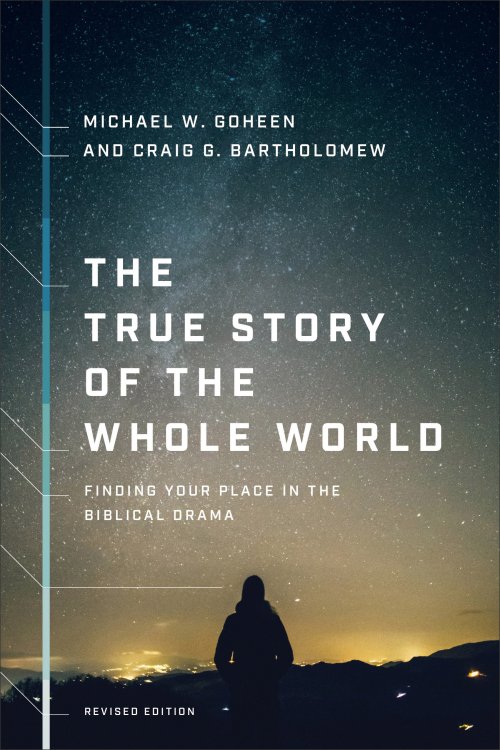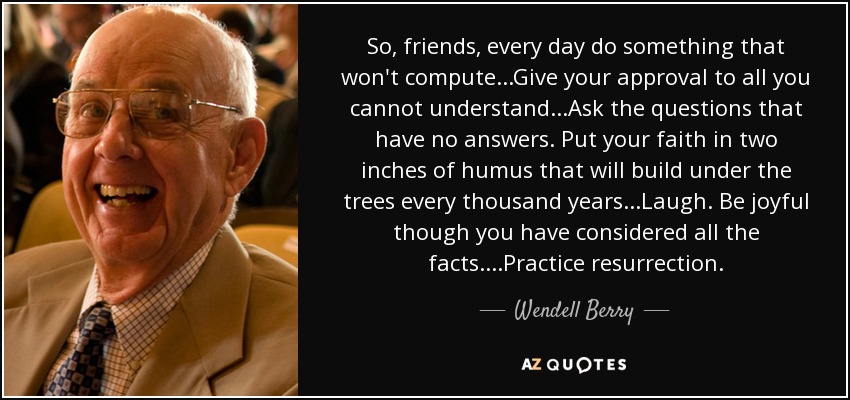This week I will be giving my final lecture in a first-year university course that I’ve been teaching each Fall for a few years. It’s an overview of the Bible, Genesis 1 to Revelation 22, in one semester, based on the excellent book by Michael Goheen and Craig Bartholomew, The True Story of the Whole World: Finding Your Place in the Biblical Drama (Grand Rapids: Brazos Press, 2020).

I find this a tough course to teach. In part, this is because I’m more used to teaching and mentoring graduate students. But the other part is that I find few students these days who want to explore “the big picture” of life, faith, the Bible, and what it means to have an integrated and seamless worldview that’s other-oriented.
The whole course is rooted in that term, worldview. It attempts to give students a way of viewing the Christian faith and life that’s not so much focussed on doctrine as on who God is as the faithful Lover who launches the redemptive drama of rescuing a (fallen) beloved Creation. By the time I chart the cosmic scope of both Creation and Redemption, culminating in Revelation 21 and 22 and its vision of the comprehensive restoration of embodied human life on Planet Earth in God’s immediate presence, I sense that students just want to return to the simplicity of “Jesus loves me” from their church youth group.
And so, on the last class session, I have to somehow show them how their university education fits into this cosmic sweep of Scripture’s narrative. It’s easy for students to see how their education can fit into a job or career because a lot of higher education has been transformed into vocational credentialing. It’s not too much of a stretch for students to consider how going to church, reading their Bibles, and praying will keep them on the straight and narrow of the personal moral life. What is getting harder and harder each year is showing students that the life of the mind, the study of Creation, the development of human knowledge are all part of what it means to worship and bear witness to the God we come to know in Jesus.
What is the place of academic life in the Christian life as a whole? There are many ways of putting these together. For some, the importance of stewardship or historical responsibility are key. For others, the emphasis falls on service or unfolding the potentials of Creation. In my own life, I’ve been drawn to reflecting on how the academic life is a particular habit of Christian discipleship. That is, to borrow from the American poet-farmer Wendell Berry, the academic life for the Christian is one way of “practicing resurrection.”
Here’s what I mean by this. When we devote ourselves to the academic study of some part of Creation, some “thing,” however obscure or tiny, we are discovering another arena of Jesus’ comprehensive kingship over all Creation. We learn something new about God. I call this the “Creation” stage.
But, as soon as we devote our focus to some massive or minuscule part of Creation, we discover that there are differing perspectives on that “thing.” Not only that, but there are also rival claims that this “thing” makes on us as scholars specifically or human beings generally. This rivalry of loyalties that emerges about a “thing” within Creation, I call the “Fall” stage because all of Creation has become distorted and there is are different religious allegiances that shape how people view the world.
At this point in one’s academic study, we also begin to realize that this “thing” we’ve decided to study exists within a context. And not only does our object of study exist within a context but we ourselves live within a culture. And so we start to understand that to truly grasp this “thing,” we must engage in an analysis of that thing’s context as well as our own contemporary culture. We basically have to figure out how “we” got “here” with this “thing.” And I call this stage “Redemption” because it is at this point that our study has brought us to the point of discerning how this “thing” and how our study of it can be directed in various ways, to different ends or purposes, with a range of outcomes. And as a Christian, one of those outcomes we must consider is how this “thing,” when it becomes misdirected within Creation, might be renewed or restored to be a harbinger of shalom.
What I’ve found in my own academic life is that, as a Christian, I get to observe the grand narrative of Scripture (creation, fall, redemption) working itself out before my very eyes in the things I study. It is through my scholarship (in my case, of institutionalized power within society or the interpretation/application of Scripture in “a secular age”) that I encounter the ever-present God, Immanuel, who we know as Jesus. Academic life, viewed in this way, is one more way in which I, as a Christian, practice resurrection.

(And if you have any comments or suggestions for how to translate this esoteric stuff to undergraduate students, I’d love to read your comment below!)
- Biblical – Not Biblicist – Scholarship - July 3, 2023
- How ‘biblical’ is “Biblical Critical Theory”? - June 6, 2023
- The Importance of Culture for Academics - May 8, 2023


